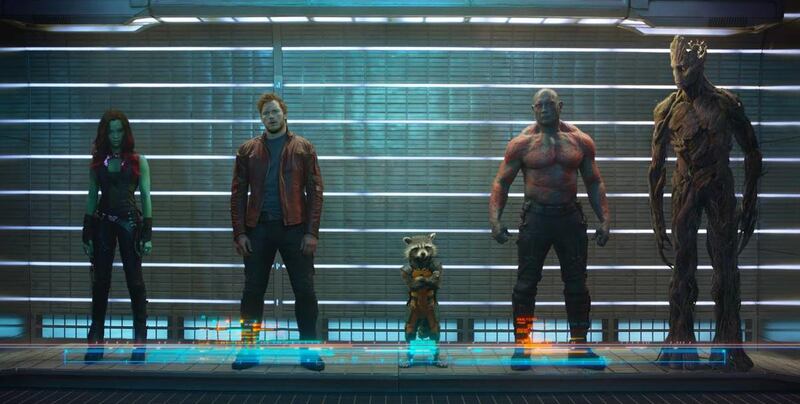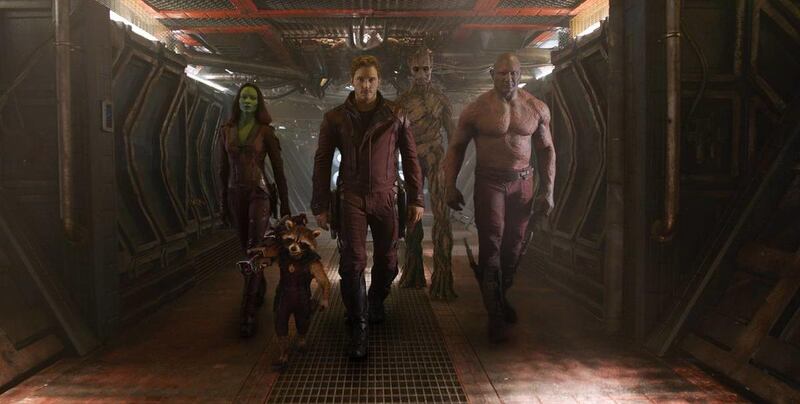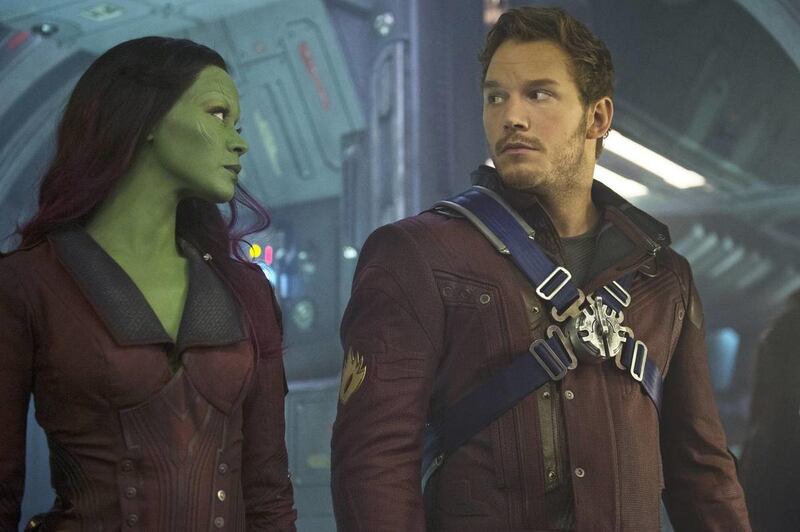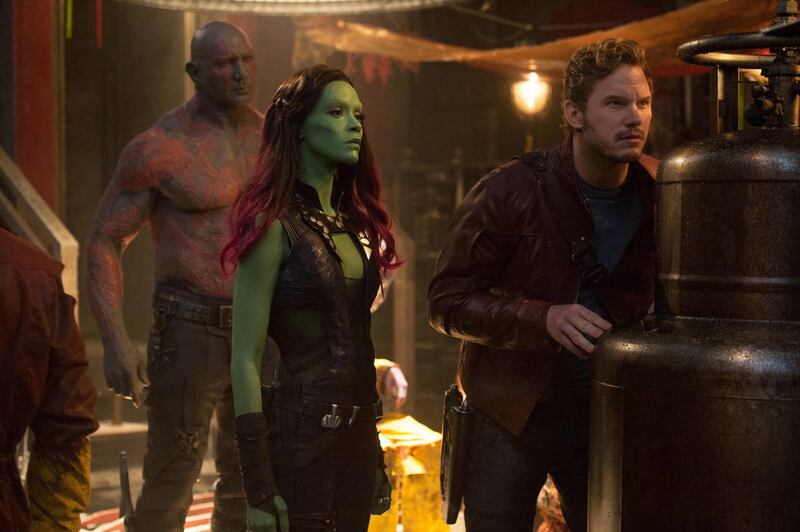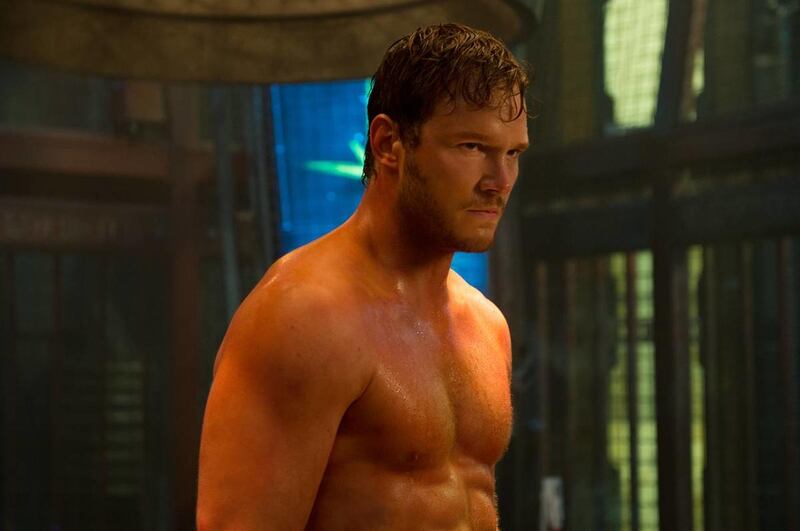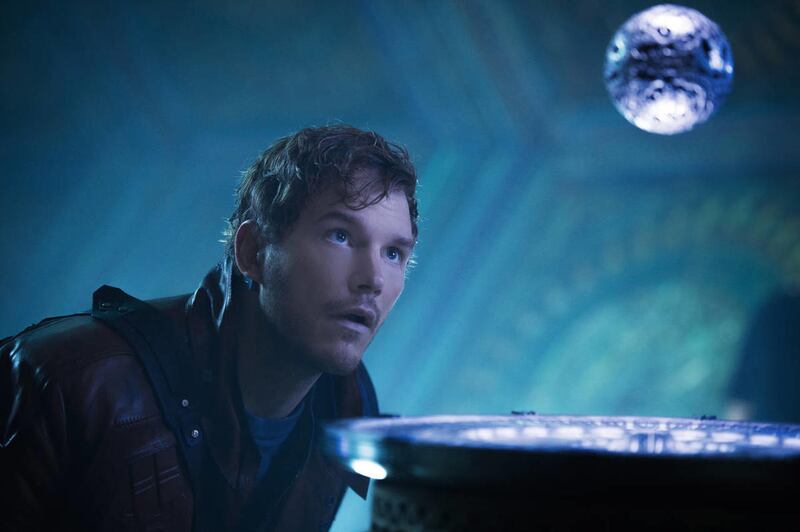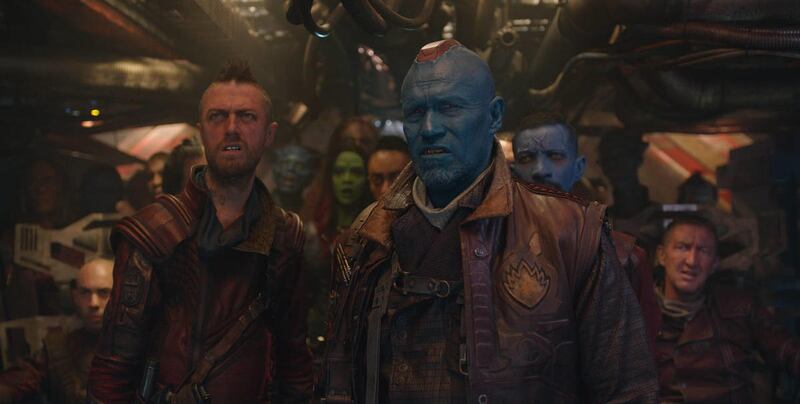What could have been a colossal misstep for Marvel has instead become one of its biggest successes, thanks in no small part to the oddball relationship between a gun-toting raccoon and a sentient tree.
Last weekend, “Guardians of the Galaxy” overtook “Captain America: The Winter Soldier” and “The Lego Movie” to become the highest-grossing domestic release of the year, according to Box Office Mojo.
It even earned praise from Marvel stablemate Robert Downey Jr., who told the Toronto Sun, “In some ways, (‘Guardians’) is the best Marvel movie ever.”
“Guardians of the Galaxy” is a lot more than just a good superhero movie, though. It’s actually kind of groundbreaking for a number of reasons, and it represents an important next step for the Marvel Cinematic Universe’s long-term plans — including, apparently, complete box-office domination.
Here are six reasons “Guardians” isn’t just fun, but a turning point.
1. It proves the value of the Marvel logo
Without question, “Guardians of the Galaxy” has been the biggest test of Marvel’s brand value to date.
Unlike Iron Man, Thor, the Hulk and Captain America, the motley band of D-list characters that make up the Guardians of the Galaxy — a comic series that wasn’t widely known even among a lot of comic fans before Marvel decided to turn it into a movie — was not in and of itself a draw for audiences.
Moreover, the space opera genre was something that was pretty far from Marvel’s wheelhouse. And the director, James Gunn, wasn’t exactly a safe bet, either.
The only thing “Guardians” had going for it was the Marvel name.
Speaking with Film School Rejects the day before the movie opened in theaters, Marvel Studios President Kevin Feige said, “ ‘Guardians of the Galaxy’ is the 10th film (in the Marvel Cinematic Universe). This felt like the time to go, ‘Well, let’s see if that red logo above the title can draw people in.’ It’s like how the Pixar logo draws me in. I mean, there’s a rat in the Paris kitchen? What is that? You’re telling me there’s an old man with balloons? Oh, it’s Pixar? Let’s go.”
Judging by the audience reactions, the gamble paid off. Marvel’s name may be all it takes to sell a movie.
Disney CEO Bob Iger told CNBC that “Guardians” shows that “the Marvel brand has arrived."
He added, “ ‘Guardians of the Galaxy’ and Marvel is a wonderful story. We believe that when we bought Marvel in 2009 they had great intellectual property, great characters, great stories and a very talented group of people working for them. We did not think that the spotlight had been put on the Marvel brand, and we thought, with their continued success, especially in terms of producing movies, and with Disney as a partner, or with them being part of Disney, we could burnish the Marvel brand. I think we’ve done a good job of that. I don’t mean to sound overly conceited about it, but I think 'Guardians of the Galaxy' speaks volumes in that regard."
2. It proves Marvel doesn’t need stars
Sure, “Guardians of the Galaxy” does feature a few big-name actors like Vin Diesel and Bradley Cooper. But almost as if to prove a point, not only do neither of them ever physically appear onscreen, Diesel’s character only says the same three words over and over while Cooper speaks in a voice that, if you didn’t know it was him beforehand, you’d never recognize.
It’s like Marvel hired the two biggest actors it could afford just to show that it didn’t need their faces on the poster to sell the movie.
Meanwhile, the only non-CGI/completely body-painted character on the team, Star-Lord, is played by an actor mostly known for his role as the lazy, overweight man-child Andy Dwyer from TV’s “Parks and Recreation.”
In the past, Marvel has made a habit of going with out-of-the-box casting choices in its films. Robert Downey Jr., although the highest-paid actor in Hollywood nowadays, barely had a career to speak of when he was signed for “Iron Man” in 2008.
“Guardians” takes that to a whole new level, though.
3. It breaks the mold for superhero movies
When someone says “superhero,” it conjures up all sorts of images: capes, tights, special powers, etc. What it doesn’t bring to mind is an angry raccoon with a gun bigger than his torso, a bloodthirsty literalist, a tree or any of the other characters from Marvel’s tongue-in-cheek space opera.
One could argue that “Guardians of the Galaxy” is the first superhero movie that doesn’t actually feature any superheroes — at least, not in the traditional sense.
Acts of extreme bravery like almost single-handedly saving an entire planet from an alien threat certainly sound like something a superhero would do — they’re actions that are heroic to a superlative degree — but they're not different from what audiences see all the time in non-comic-based sci-fi/action movies like “Star Wars” or the J.J. Abrams Star Trek films.
Beyond that, with the exception of Star-Lord, none of the characters use alternate names. They also don’t have special costumes or powers or suits of high-tech armor. And they definitely don’t behave the way superheroes are expected to. In most ways, the only thing that associates them with the genre is the Marvel logo.
This might seem like a small thing, but it opens up the realm of possibilities for future superhero movies. With “Guardians,” we’ve successfully moved beyond what’s typical of the genre, allowing for a greater variety of stories to be told that focus on characters, regardless of whether or not they have a catchy superhero name.
4. It shows it’s OK to go weird
While DC is still trying to figure out how to get its Justice League movie off the ground, Rocket and Groot have become two of the unlikeliest fan-favorite characters in recent memory.
There were more than a few raised eyebrows when audiences got their first glimpse of “Guardians” at the end of “Thor: The Dark World” in a scene involving Benicio del Toro’s Collector and a set that looked like something from "Mystery Science Theater 3000." But that didn’t keep Feige and Gunn from diving headfirst into the weird, colorful universe of “Guardians."
And they did it with confidence and retro style to spare.
The fact that it worked means audiences can look forward to more experimentation and creativity in the future. And that’s a good thing, because there’s a lot of great stuff in the Marvel comics universe that, a year ago, wouldn’t have stood a chance of ever getting adapted.
“The Eternals”? “Damage Control”? “Throg and the Pet Avengers”? Anything is fair game at this point.
And Marvel isn’t the only studio that benefits from this. DC has famously struggled with how to bring Wonder Woman to the big screen in a way that audiences won’t scoff at. Even “Avengers” writer-director Joss Whedon couldn’t crack the code in a way that was satisfactory for the studio.
However, “Guardians” shows that audiences are willing to get onboard with things a lot weirder than an island of warrior women so long as the movie is well made and commits to its vision.
5. The music
According to Billboard, the “Guardians” soundtrack, subtitled “Awesome Mix Vol. 1,” hit the No. 1 spot on the music charts — a history-making first for a soundtrack composed entirely of old music.
Responding to the news, Gunn wrote on Facebook, “All those days as a child I spent locked in a room listening to AM radio were not wasted!”
He also added, “Somewhere in a boardroom right now a movie executive is trying to give a film that's not testing well the ‘Guardians soundtrack treatment but with a new twist’ — say, ’90s grunge hits over a buddy action comedy. This is something you will not thank me for.”
That’s probably true, but the fact is, superhero movies have often had pretty unremarkable soundtracks. Other than the Christopher Nolan Batman movies, when was the last time a superhero movie’s soundtrack stood out? Tim Burton’s 1989 “Batman”?
Taking a new approach to the scoring — especially one that ties directly to a character element in the film — is a nice change of pace, and if studios are paying attention, it should affect the way they look at scoring superhero movies in the future. Like the overall tone of “Guardians,” taking chances with the soundtrack proved to be a very good thing.
6. It launches the Marvel Cinematic Universe into the stratosphere
Marvel hasn’t announced a new superhero franchise since “Dr. Strange,” which could, itself, be a game-changer for the studio by introducing magic to the universe.
With the success of “Guardians,” though, it points at least part of the future Marvel Cinematic Universe in a very clear direction: upward and outwards into the far reaches of space.
There were already hints that this would be the long-term trajectory of some Marvel properties, with the appearance of Thanos at the end of “Marvel’s The Avengers” and, of course, the sci-fi/fantasy world of Asgard in the Thor movies.
But how much they would explore the cosmic elements that make up so much of the comic book canon was still very much up in the air. “Guardians” becoming a hit largely independent of the rest of the Marvel movies gives the studio leeway to branch off with more stories set on alien worlds without necessarily having to tie them back in to the core Avengers films at all.
One obvious next step could be Adam Warlock, a genetically engineered, paranoid schizophrenic, alien messiah who, in the comics, is a principal member of the current Guardians team.
(The cocoon from which Warlock is born in the comics was briefly glimpsed in the Collector’s museum at the end of “Thor: The Dark World.”)
There have also been rumblings for a long time now of a movie based on the Inhumans, an ancient race of humans who were experimented on by aliens and granted special powers.
Recently, Vin Diesel dropped hints via his Facebook page that Marvel might be looking at him to star in that movie, saying, “I get the strange feeling that Marvel thinks I’m Inhuman … Haha.”
For anyone wondering how he could get away with playing a second character in the Marvel Cinematic Universe, the leader of the group, Blackbolt, is supposed to be so powerful that his voice can destroy planets, so he doesn’t speak. In other words, Diesel’s voice could be in one property and the rest of him in another.
If “Guardians” had bombed, the Marvel Cinematic Universe would probably have stayed mostly grounded on planet Earth for the foreseeable future.
But now, all of this becomes not just a possibility, but a distinct likelihood, especially with the promise of a “Guardians of the Galaxy 2” in 2017.
Jeff Peterson is a native of Utah Valley and studied humanities and history at Brigham Young University. Along with the Deseret News, he also contributes to the film discussion website FilmInquiry.com.

